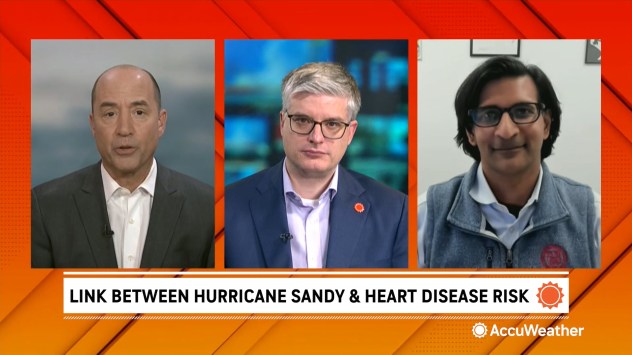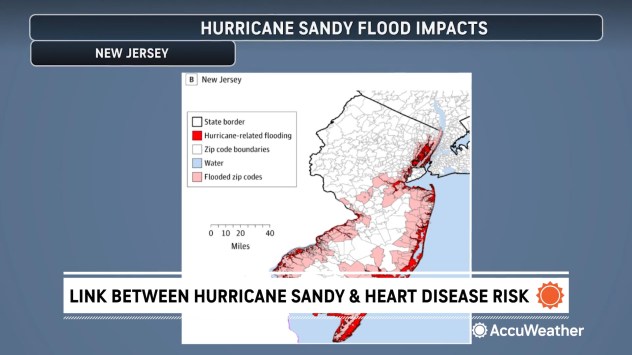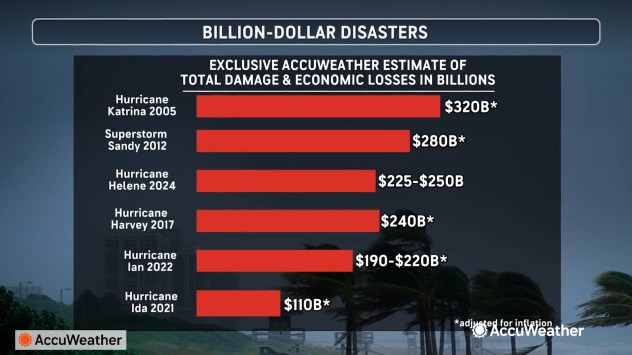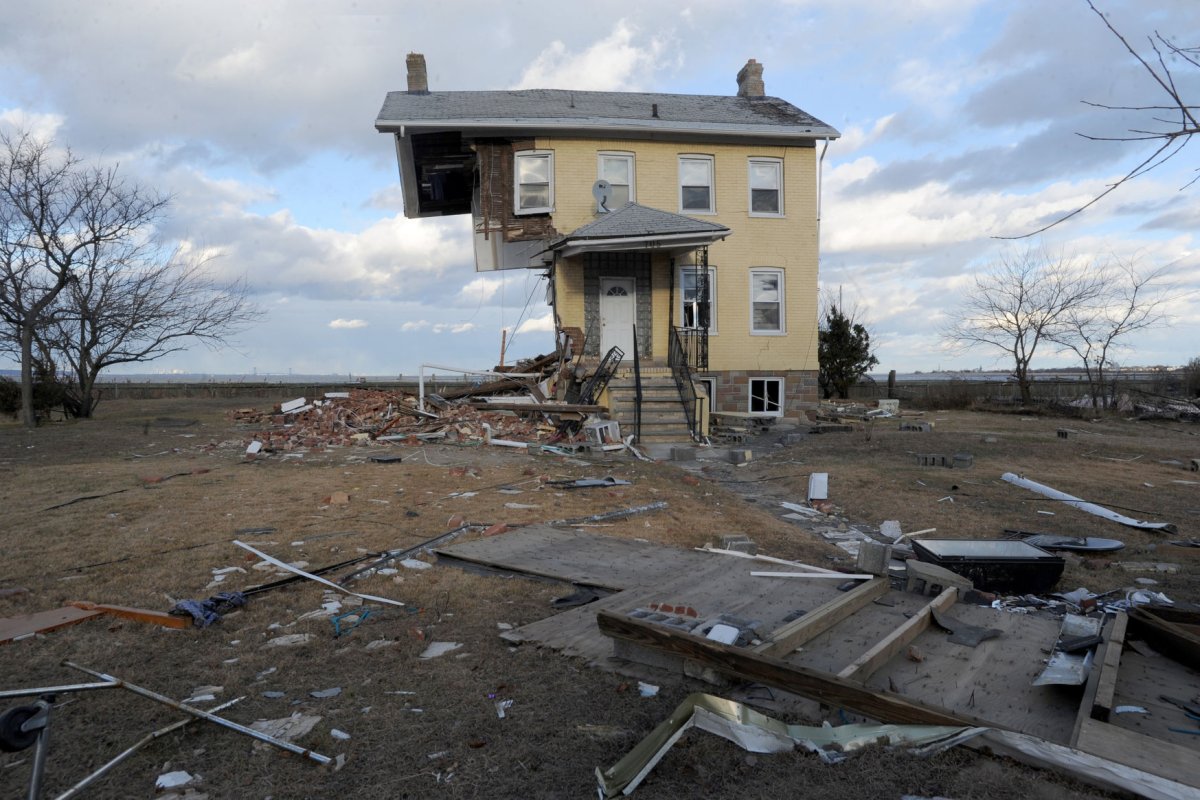A new study published in JAMA Network Open, a monthly open-access medical journal published by the American Medical Association, has uncovered a long-term link between Hurricane Sandy flooding and increased heart disease risk in older adults affected by the storm.
To discuss the findings, AccuWeather Chief Meteorologist Jonathan Porter was joined on the AccuWeather Network by Dr. Arnab Ghosh, Assistant Professor of Medicine at Cornell Medicine and lead author of the study.
Investigating long-term health impacts
Dr. Ghosh, reflecting on the origins of his research, shared his firsthand experience during Hurricane Sandy.
“I was a resident at Bellevue and NYU when Hurricane Sandy hit. I witnessed the hurricane flood affecting our hospital, carrying gasoline up to the 13th floor and patients downstairs when the power went out,” he recounted.
This close encounter with the storm’s immediate effects led him to investigate the long-term health impacts on his patients.

Dr. Ghosh’s observations highlighted short-term disruptions in medical care, such as uncontrolled blood pressure and a lack of diabetes medication due to power outages.
“Not controlling your medical conditions in the short term can have long-term implications,” he emphasized.
His study suggests that these immediate challenges translate into significant long-term health risks.
Striking findings in New Jersey residents
The study’s findings are particularly alarming for New Jersey residents.
“We found that the risk of developing heart attacks, strokes, or heart failure in the aftermath of the hurricane was significantly elevated up to five years after the event,” Dr. Ghosh revealed.
For those living in flooded zip codes, the risk was about 1 in 20.
Porter responded to these findings with insights from broader research.
“AccuWeather has been highlighting for decades that the impacts in the wake of natural disasters, especially major ones, are greater than often reported,” he said.
Porter cited a Nature Magazine study indicating that hurricanes produce 7,000 to 10,000 excess deaths in the 10 years following the storm, underscoring the importance of Dr. Ghosh’s findings.

Extended Impacts Beyond Initial Damage
Dr. Ghosh was unsurprised by the extended impacts mentioned by Porter.
“We always worry about the risk of dying in the aftermath and how it extends into the long term,” he explained.
The study links these long-term health risks to various stressors, including flood damage, insurance issues and relocation challenges.
“Stressful situations make it more likely to develop heart disease,” he noted.
Porter pointed out patterns observed in the long-term aftermath of major hurricanes like Sandy and Katrina and in the Los Angeles wildfires.
“The stress of surviving such events contributes to the long tail of medical and economic impacts,” he said.
AccuWeather’s holistic approach to estimating total damage includes these extended impacts, often resulting in higher estimates than other sources.
Recommendations for Future Preparedness
Reflecting on these findings, Dr. Ghosh emphasized the role of hospitals and public health officials in mitigating long-term health impacts.
“We need to consider hurricanes and extreme weather events as risk factors for medical problems. Should we be looking after these patients differently and moving them out of harm’s way?” he asked.

Porter highlighted the importance of comprehensive planning for forecasters, policymakers and communities.
“We need to think about not only the short-term impacts but also the long tail of impacts. With climate change leading to more frequent and severe weather events, our response to natural disasters must evolve,” he said.
As severe weather impacts become more frequent and magnified due to climate change, understanding and preparing for the long-term health consequences of such events is crucial. Studies like Dr. Ghosh’s provide valuable insights to help shape future preparedness and response strategies.
